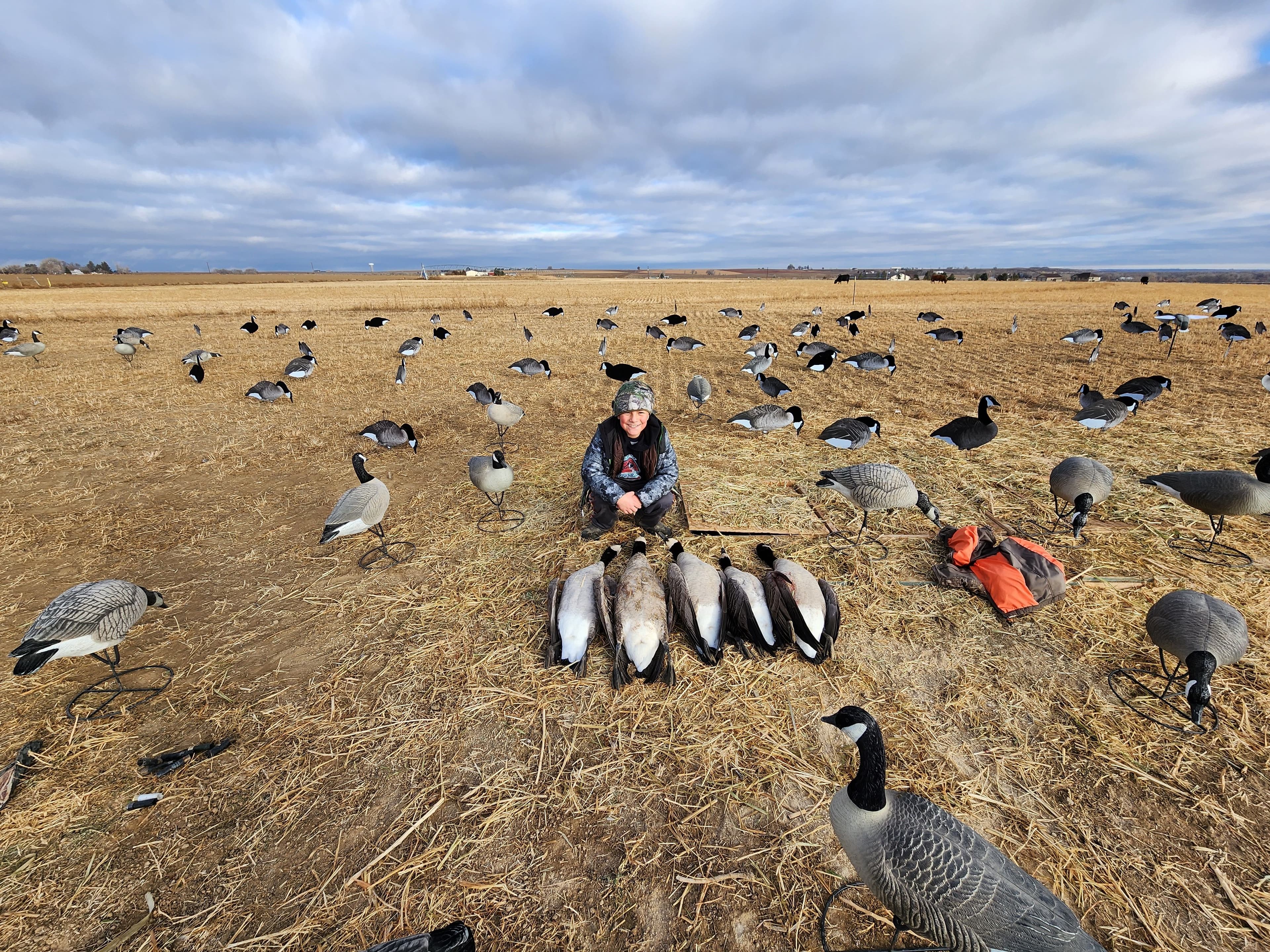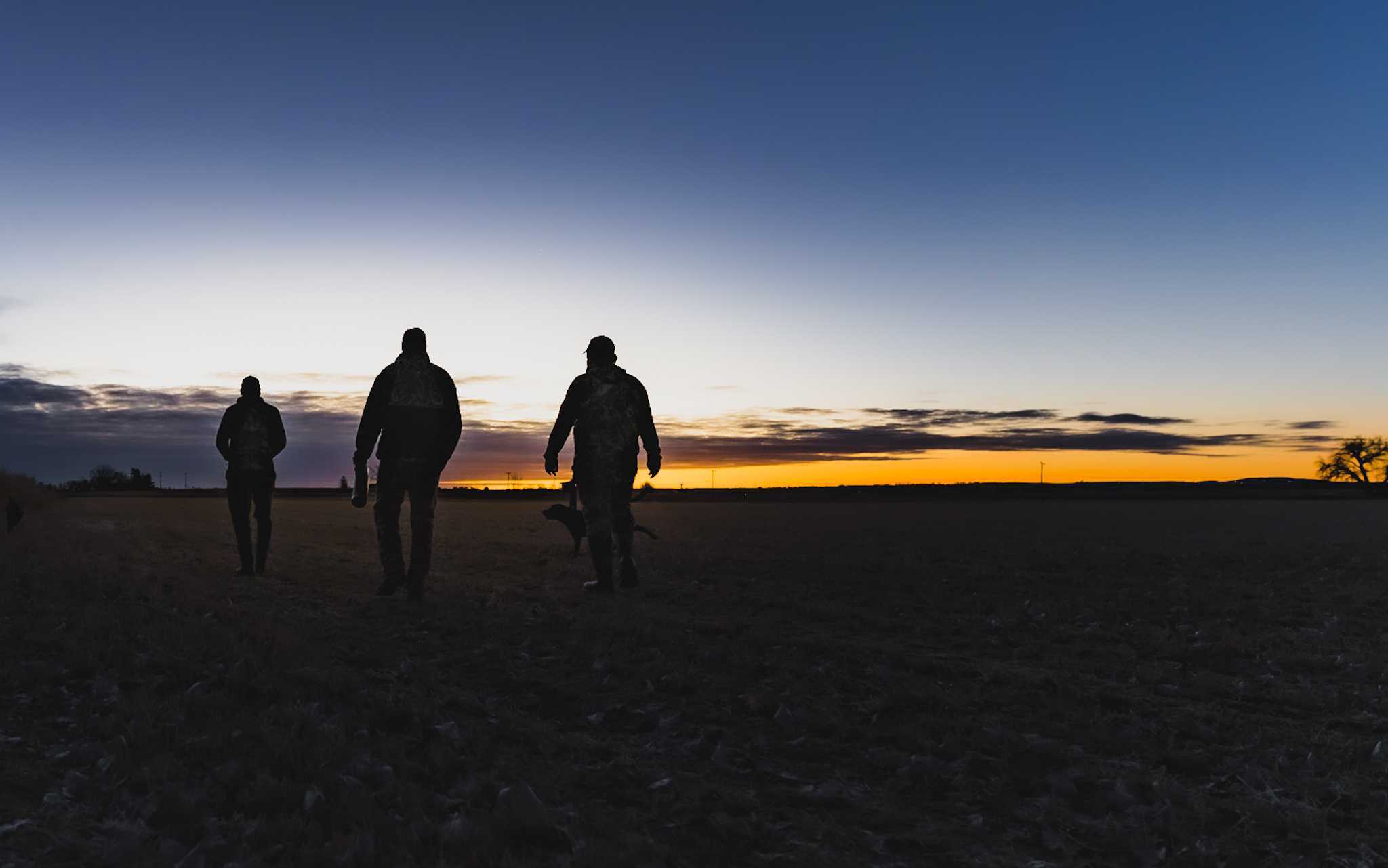Waterfowl Hunting: What are the unwritten rules and are we all following them?


Sam Brunner
11/08/2023
There are few things more reliable than the migration of ducks and geese flying south each fall and winter. As they make the long push across the US, hunters from all walks of life also migrate into nearby fields, lakes, rivers, and ponds hoping for a chance at a successful harvest. In fact, waterfowl has become one of the most popular things to hunt in the United States. It’s affordable, typically close to home and fairly time efficient compared to its larger counterparts in the world of big game. With its ever growing popularity, the number of hunters that are chasing waterfowl continues to skyrocket. Now let me be clear about this: I love the fact that one of my favorite pastimes is being spread far and wide. I love to see it thrive, and love to see new members joining the hunting world every single day. I even enjoy taking a rookie out every now and then to teach them the ways. Even though God knows I’m not the best hunter in the world, I feel that I can teach newcomers things that are important to hunting, other than how to blow a call or set up a spread. Among that short list of things that I’m able to teach, is the topic of ethics in hunting.

We could write an entire book about the unwritten rules in the waterfowl hunting world. From A to Z, we could go on for an eternity. But the fact of the matter is, everybody is different and will view the topic of ethics as such. However, I believe that there are a handful of rules that every hunter should follow, no questions or arguments involved. But before I dive into my top rules to follow, a brief explanation of why I think they should be followed and put into practice by each hunter, new or experienced. To put it bluntly, by respecting these unwritten rules we are preserving the sport of hunting for years to come. The more ethics and unwritten rules that are broken, we are only harming our sport, dividing the people inside of it, and directly affecting its future. These “rules” carry across public, private and everywhere in between and are something that myself and those that I hunt with always like to follow when out in the field.
That brings me to my short list of ethics that I believe should have no wiggle room. The first on this list I wish all hunters respected, is a strict no sky busting mindset. This means not shooting at birds 80+ yards in the air, hoping for one BB to hit the mark. There is no sport in that. Rather, we should all be making the effort to get our birds to decoy, or at least get low enough on their final pass that we’re certain we can knock a few out of the group. By sky busting, especially on public land, all we are doing is educating the birds, telling them that it isn’t safe for them here, forcing them to move on to the next field and often ruining the hunting experience for the next group. Now, some of you might say, “screw the next group, why do I owe them anything?” Well, what if the next group has youth hunters in it, and if they have one too many boring days or bad experiences in the field, it causes them to give up on this passion we all want to be carried on? This directly harms the future of the sport of hunting, which is a large part of the reason that as I’ve gotten older, I’ve sought out private land to hunt on. No, I can’t guarantee that anybody I share a field with throughout the season won’t skybust, but I can be confident that those who are monetarily invested in it, like I am, are more inclined to respect the unwritten rules. On top of possibly hurting the next group's hunt, the act of sky busting can also risk injuring a bird, just to the point that it can still fly away, but ends up dying in the middle of the next lake they land in. Many people react by saying, “Well there are plenty of birds around, what’s one less?” which is the exact attitude towards conservation that hinders efforts made nationwide by non-profits. We need less of that mentality, and much, much more of the opposite. This plays a large role in several conservation groups having a desire to work with private landowners; because things can be managed and monitored in a more quality manner than they can be on public land.
Another ethic I believe firmly in, relates more to public land hunting than private. Too many times have I, and so many other hunters, showed up to spot early, taken the time to set my spread just how I like it, and settled in for the first ray of light to shine. Only to be joined by a group, 10 minutes before shooting light, setting up their decoys a mere 50 yards away in an area that is nowhere near big enough for the both of us. Now I don’t know about you, but I was raised to understand that if somebody beats me to a spot, that is their spot; more power to them and I’m moving on. There isn’t a duck or goose in the world that is so important to me that I want to risk getting peppered or shot. Just like there isn’t a bird alive that drives me to infringe on another hunter’s day. It brings me back to my previous point of, what if they have youth hunters with them? No matter how hard they try to teach their youth the proper ethics of the hunting world, it takes one instance to teach them that rules are ‘meant to be broken’, and we only damage the future of hunting. Now, if we meet in the parking lot, talk about it and come to the conclusion that we can hunt together, then great! But if not, it should be understood that the spot is theirs. By breaking this unwritten rule, it shows no respect for others in our sport, rather only caring about getting our shots in.
Experiences like what I mentioned above only further my desire to hunt on private land. Don’t get me wrong, I still hunt public land a fair amount, because I know the quality of hunting experiences it can provide. But I always walk into it, knowing that I’m not in full control of what happens out there. Whether it’s something small like a previous hunter leaving a pile of trash for me to clean up, or something large like being peppered by hunters who chose to join me at first light, I always hunt public land with my head on a swivel. That’s just the world we live in today. But, every now and then, when I’m lucky enough to find myself on private land, in a blind that I didn’t have to race to or fight for, the sense of calmness that takes over is incredible. To me, that calm feeling is worth the price of admission alone.

While those may be some major ethics to consider while out in the field, there are plenty of smaller things to always consider whether hunting on public or private land. Oftentimes while hunting waterfowl you tend to cripple birds and not recover them, which hurts but it happens. While it's not written in law, I always count those towards an overall limit. There is a lot of conservation work that is done to set limits, and they are there for a reason, which is why we should all choose to count the birds that aren’t recovered as part of our limit. Even if all we are doing is feeding eagles and hawks, we can’t get greedy. Other little things that make huge differences would be not driving in muddy fields and causing ruts, picking up your empties, and leaving a blind or pit cleaner then you found it, and being friendly to other hunters around you. We are all out there to have a good time and enjoy the outdoors, and treating the place and those around you with respect never goes unnoticed. We all hunt for a reason, whether it be because it brings us closer to the ones we love, or it’s a passion that has been passed down to us by the generations before us. We all have a reason. I take it upon myself to respect your reason, by conducting myself in an ethical way. I can only hope that at the end of the day, we are all out there doing the same exact thing.
As things continue to get busier in the waterfowl world we encourage you to be respectful and always consider who else is hunting around you or coming to that spot the next day. As public spots get more and more crowded, private property is also always a great thing to consider, especially for those new to the sport. I know that most times, private means paying, and an annual lease is a tough pill to swallow for a lot of folks. I encourage you to check out the Infinite Outdoors platform. You can count on the over 50 waterfowl spots in the Colorado and Wyoming area alone, being managed, respected, and affordable. Happy hunting.